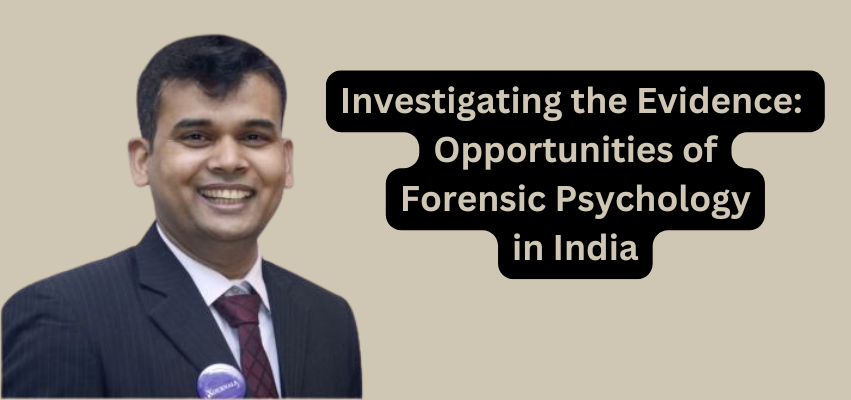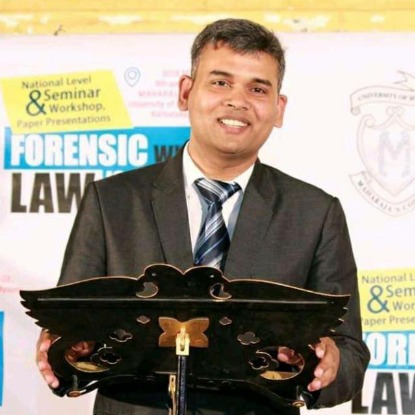
Investigating the Evidence: Opportunities of Forensic Psychology in India
It was an honor to conduct a session on forensic psychology at O.P. Jindal Global University, where I delved into the evolving opportunities in this fascinating field. Forensic psychology is an emerging discipline in India, bridging the gap between law and human behavior.
This session aimed to shed light on how psychological principles can aid in understanding criminal behavior, interpreting evidence, and improving the justice system.
I began by discussing the significance of forensic psychology in modern investigations. The human mind plays a pivotal role in crime—whether as the perpetrator, the victim, or the witness. By studying behavioral patterns, psychological triggers, and cognitive responses, forensic psychologists provide invaluable insights into motives, thought processes, and actions. These insights often help investigators piece together puzzles that purely physical evidence cannot solve.
Applications of Forensic Psychology in India
The application of forensic psychology in India is steadily gaining momentum. From analyzing criminal behavior to conducting mental health assessments for accused individuals, this field is indispensable in modern criminal investigations. I highlighted real-world examples, such as offender profiling, lie detection, and the psychological evaluation of witnesses, all of which have proven critical in high-profile cases.
Our discussion also touched on the emerging use of cognitive interviews in India. This method, which focuses on retrieving accurate information from witnesses and victims, is a powerful tool in ensuring justice. By understanding how memory works and how stress affects recollection, forensic psychologists can reduce inaccuracies in testimonies.
Opportunities and Challenges
During the session, I emphasized the growing demand for forensic psychology professionals in India. Legal firms, law enforcement agencies, correctional facilities, and academic institutions are increasingly recognizing the value of this expertise. However, there are challenges to overcome. Limited awareness, scarce specialized training programs, and inadequate infrastructure still hinder the field’s growth.
One of my key goals was to inspire students to consider forensic psychology as a career. India, with its unique socio-cultural diversity and evolving legal framework, provides fertile ground for research and application. I encouraged attendees to seize opportunities in this field, not just for career growth but also to contribute meaningfully to society by strengthening the justice system.
Practical Insights and Case Studies
To give the students a deeper understanding of forensic psychology’s practical side, I shared a few case studies. One involved offender profiling, where understanding the psychological traits of a serial offender helped narrow down suspects. Another highlighted how a psychological autopsy was used to determine whether a death was accidental, suicidal, or homicidal. These examples underscored the significance of combining psychology with forensic evidence to solve complex cases.
The interactive nature of the session was particularly rewarding. The students raised thoughtful questions about ethical concerns, the reliability of psychological evaluations, and the impact of cultural factors on forensic assessments. These discussions reinforced my belief that India’s younger generation has immense potential to elevate this field.
Building a Brighter Future
I concluded by emphasizing the need for collaboration between psychologists, law enforcement professionals, and legal experts to advance forensic psychology in India. Establishing dedicated training programs and research facilities is crucial to address the current gaps in infrastructure and knowledge.
O.P. Jindal Global University’s commitment to enhancing interdisciplinary learning is commendable, and I am confident that the seeds sown during this session will bear fruit. Forensic psychology holds the power to revolutionize how justice is served in India, and I am excited to see the next generation of professionals take it forward.

